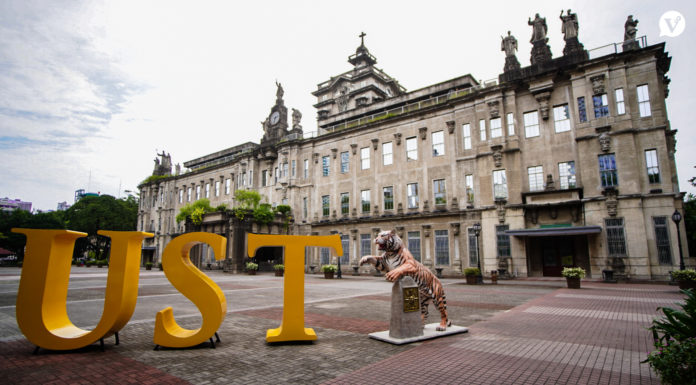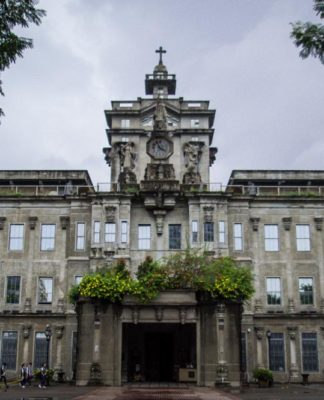 I WAS on a jeepney going home when I saw a poor woman carrying her child, busily shouting and calling for passengers to ride on the jeepney. I thought she only had a child—the one she was carrying—but then I was shocked upon seeing two other small naked children sitting and playing on the streets with no one looking after them. They were also her children.
I WAS on a jeepney going home when I saw a poor woman carrying her child, busily shouting and calling for passengers to ride on the jeepney. I thought she only had a child—the one she was carrying—but then I was shocked upon seeing two other small naked children sitting and playing on the streets with no one looking after them. They were also her children.
I suddenly felt pity for them because these poor children were not as lucky as others who live sheltered lives, attend school and play with toys. But despite being exposed to harsh society, these children still managed to smile and be contented.
It was reported early this year that Filipinos ranked 67th as the happiest citizenry in the world among 142 countries, according to the study of the London-based Legatum Institute Prosperity Index posted in Forbes.com.
Norway topped the list while Central African Republic, with five million people, was the saddest. This was based on 89 indicators grouped into eight categories: economy, entrepreneurship and opportunity, governance, education, health, safety and security, personal freedom and social capital.
Although being 67th out of 142 countries does not automatically mean that Filipinos are happy, the fact that they belong to the upper half of the countries surveyed should at least indicate that they may not be as pessimistic as the bottom half.
So should Filipinos really be happy?
Recently, it was also reported that the government offered P18,000 each for every family of informal settlers living along waterways in Metro Manila to allow them to rent elsewhere for one year as the government is looking for a location to resettle them.
Almost two years ago, President Benigno Aquino III unveiled a P50-billion relocation plan for 100,000 families of informal settlers. But the plan has bogged down because of government’s failure to was not yet pushed find relocation sites that are safe, cheap and accessible to factories and job sites.
The P18,000 offered by the government is only a temporary solution to the problem. There are 20,000 families living along the waterways.
The government is fond of using “band-aid” solutions to resilient problems and issues faced by the country. Giving the money to the informal settlers will not ease the problem. That money will just be used for other purposes. A family may find a decent house somewhere but it will not guarantee that they will not go back to the waterways. They will cleave to where their livelihood is.
The Reproductive Health Law is another band-aid solution to poverty of the country. It’s basically a popular control measure to check what the government perceives as an overpopulation, when in fact the Philippines has a healthy population growth rate. By opting for population control, government points to the increasing population as the culprit and cause of poverty. It is in fact trying to pass the blame to the poor when in fact, poverty in the Philipines is caused by government mismanagement, corruption and wrong priorities, such as the RH law.
As long as government does not shape up, Filipinos will remain suspect as a happy people. Definitely there’s no cause for happiness for Filipinos laboring under the yoke of an incompetent and/or corrupt government.















“Anong ipinapaglaban natin dito?”
I get it; The RH bill may seem such a superficial solution to you. I acknowledge that the RH law can not truly mend all the problems in the country. And I guess that any other solution will share that outcome. But isn’t it better to start solving one problem than to continue searching for an unreachable, Panacean solution?
“Anong ipinapaglaban natin dito?”
I get it; The RH bill may seem such a superficial solution to you. I acknowledge that the RH law can not truly mend all the problems in the country. And I guess that any other solution will share that outcome. But isn’t it better to start solving one problem than to continue searching for an unreachable, Panacean solution?
The author failed to realize the irony in the editorial – the family she cited in the opening would have had less children and a better living with reproductive health support from the government.
This is a senseless article articulating a correlation between the culture of the Filipino people who try to find happiness, not because we are happy with incompetence but just because we try to find happiness, it’s a coping mechanism. It’s better than moping around doing nothing don’t you think. Yes I do think Filipino’s should be happy, because happiness is not equated to wealth nor is it equated to the sense of productivity, happiness is attributed to the immaterial. Don’t base an assumption to something as ambiguous as happiness with something as complex as poverty, with no prior research. Please try to reevaluate your claim.